Portland community leader weighs in on the key to curbing city's record gun violence
The city asked Tony Hopson and his nonprofit SEI to help after Portland's first drive-by shooting in 1988. Decades later, he's still in the mix — with more to say.
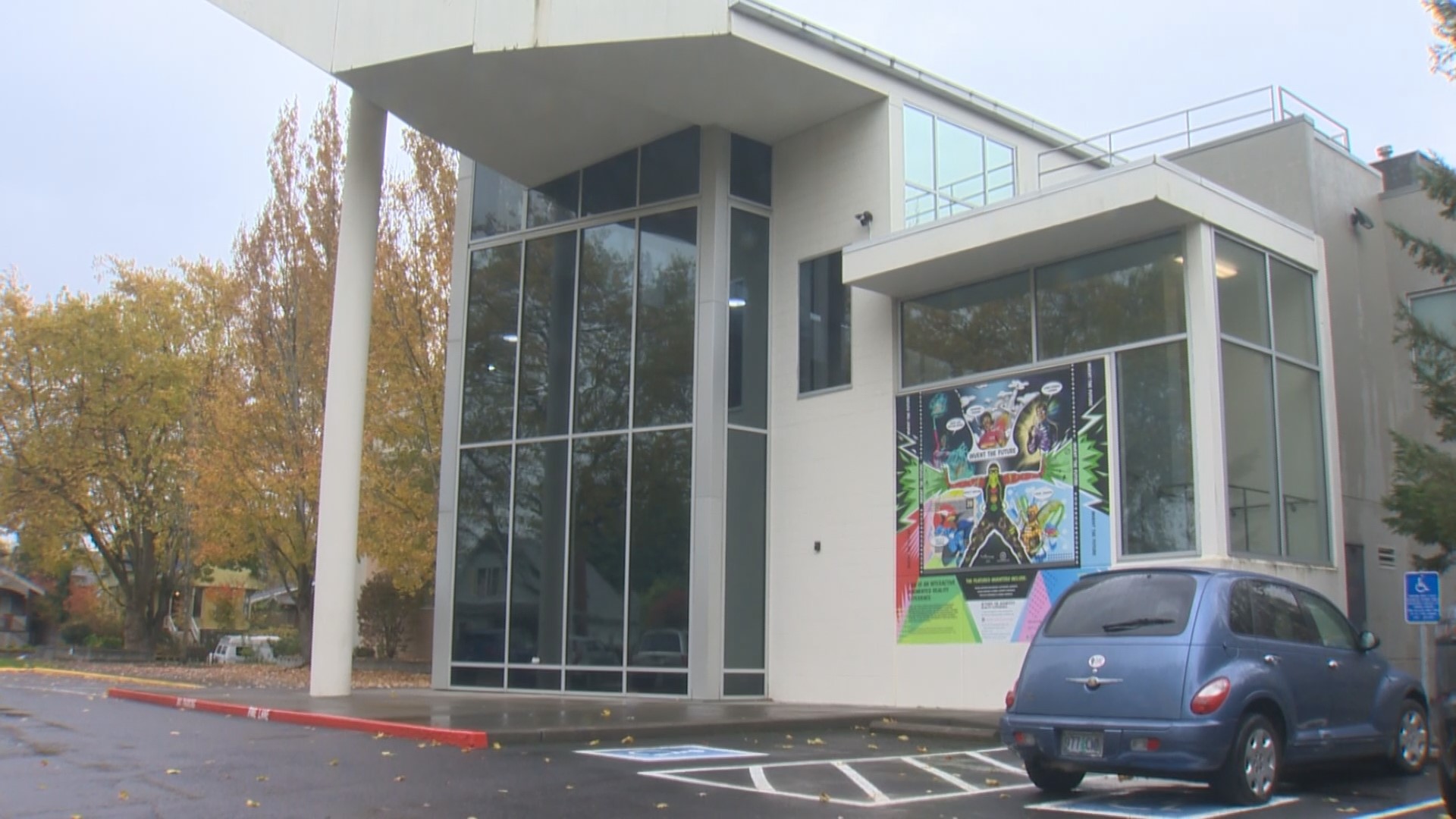
The entire city of Portland is wrestling with how to deal with record levels of gun violence. The city's very first gang-related drive-by shooting was in 1988, and at the time, Portland leaders were desperate to do something. They did — but they didn't do it alone.
Tony Hopson, the founder of Self Enhancement Inc., or SEI, is one man who helped back then. Now, decades later, he's still working with youth on the streets.
Work continues decades later
Recently, Hopson shared his take on how the city can change things, restore public safety and show kids who are falling through the cracks that they have options besides crime and violence.
When it comes to intervening in the lives of underserved youth and families in Portland, SEI is a leader. It serves kids wherever they're at risk — in school, at home and in the community. It works with youth from 6th grade through college, or until they find a living wage job.
Hopson founded the nonprofit 40 years ago on North Kerby Avenue.
"This is not a job. This is a way of life," he said.
SEI's motto is "Life Has Options." It exposes kids to everything from the performing arts to athletics. Hopson, a Portland native, says the focus is always community.
"It's about giving back to the very community that raised me and raised a lot of individuals who look like me. So, my entire life's work has been about community."
Hopson was just starting SEI in the 1980s when the Bloods and Crips came to Portland from South Central Los Angeles to sell drugs — primarily crack cocaine. The violence was devastating the Black community and kids in the fledgling SEI program were not immune.
Portland's first drive-by shooting happened on Aug. 17, 1988, at the Columbia Villa housing project. Hopson knew the shooter and the victim, Ray Winston, a Roosevelt High School athlete who police say was also a member of the Columbia Villa Crips. Both were teens. They were both SEI kids.
Hopson remembered, "I don't think they had a beef with each other. They had been playing basketball in our camp just a couple of weeks prior to that, so it really wasn't a personal thing. It was just a matter of being affiliated with two separate gangs."
After that shooting, desperate to stop the violence, Portland leaders gave SEI money to expand, transforming it from a week-long summer basketball camp to a year-round program for kids and their parents. As it did then and still does today, SEI serves all aspects of a family's life, offering help with employment, housing, health care, addiction and more.
"I tell folks, show me an at-risk kid, follow that kid home and I'll show you some at-risk adults," Hopson said. "We don't have a youth problem in America. We have an adult problem in America. When adults get it right, kids will get it right."

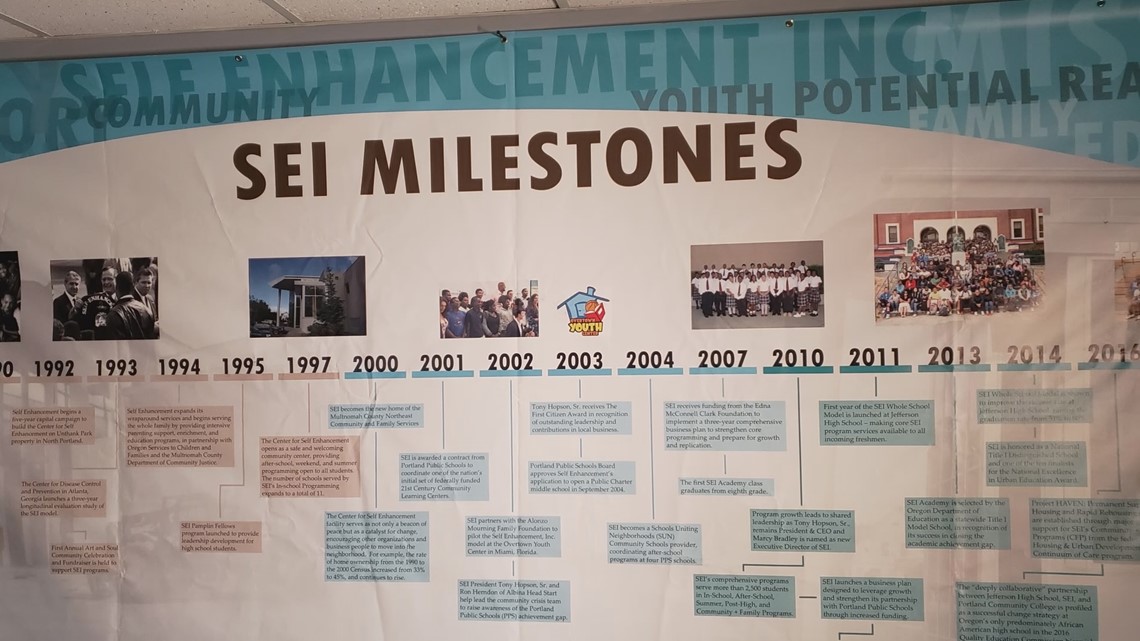
Looking back at the arc of the last several decades, Hopson sees parallels between what happened then and the record number of shootings plaguing the city today.
"The same reasons why many individuals found themselves in gang activity then still exist today. In fact, it's worse," said Hopson.
He says Portland leaders are failing to get a handle on gun violence because they're spreading resources too thin over multiple places, programs and people.
"We never get the job done because we do enough work to make a difference, but we never do enough work to make the difference. If you want to make the difference, then you go all in and you put enough resources to make the problem go away, not to just soothe the problem. And all we do is soothe the problem. We make it a little bit better, but we never make it go away because we never put enough money in it. You find the programs that work, you give them the money and you let them go do what they do."
Hopson preaches prevention and intervention, but he says we can't restore public safety without police.
RELATED: Portland Police Neighborhood Response Team launches pilot program aimed at solving community crime
"I mean, we gotta have police to hold criminals accountable, but before that individual became a criminal, if we had services and activities, there would be less of them. Coming out of the George Floyd stuff, I mean, that was just so devastating to watch that it was all kind of anti-police. Well, yes, we're all anti that kind of police officer. We're all anti that. You can't be human and look at that and not know that that ain't correct, right there."
Like so many cities in the wake of George Floyd's death and the Black Lives Matter movement, Portland is at an inflection point. Hopson says he'll always be hopeful, though, and believes the current crisis will open doors for new solutions in the future.
After 40 years of doing this work, here's what he knows for sure: "The most success that we've had is because of our willingness to actually establish a real personal relationship with a kid and a family. Everybody wants it, everybody needs it. And all of us have the ability to share ourselves in that way. That is truly the answer."
Creating lifelong relationships
How do we break the cycles that keep people from reaching their full potential? When kids are surrounded by poverty, crime, hunger, unemployment and more, how do they find their way out?
Self Enhancement Inc. says the answer lies in relationships — deep relationships with adult mentors that last a lifetime. When kids are searching for themselves in all the wrong places, show them life has options. Give them hope. It's not easy or linear, but it works, and Portlanders Martae Brown and Alan Bell are proof.
They greeted each other in the lobby of SEI one morning and hugged. The two men aren't related, but they are family — SEI family. The campus is their home away from home. They grew up in the program.
"Man, you just got people who understand you and that take you under they wing, you know what I mean? It's just a beautiful thing," said Brown.
It's also a lifelong thing.
Brown started going to SEI in 2nd grade and he's still plugged in today at 26. They helped him get into college to play football but their bond went beyond that.
"They would make sure I had food. If I was short on my rent, they would help me with my rent. They just did everything that you could imagine to make sure I stayed on course," Brown said. Brown even came back SEI to celebrate when he signed to play with the Indoor Football League.

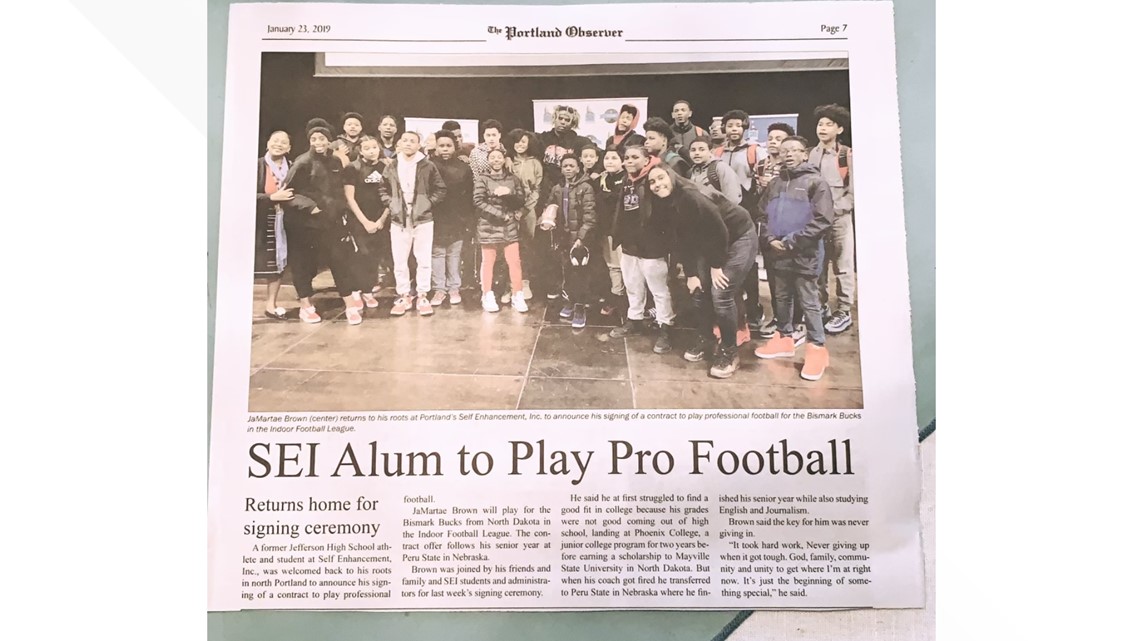
Brown and Bell are among the thousands SEI has mentored over the past 40 years. Now they're paying it forward. Brown coaches at SEI and works with kids at Beaumont Middle School; Bell mentors gang-affected youth.
"I feel like with my past it's mandatory that the same community I kind of helped tear down, I have to help build it back up," Bell said.
Bell fell into gangs and spent time in prison but when he got out, SEI helped him start over. He says even now, at age 42, the program is his touchstone.
"Whenever I need some good, sound information, some advice, I tap in back here."

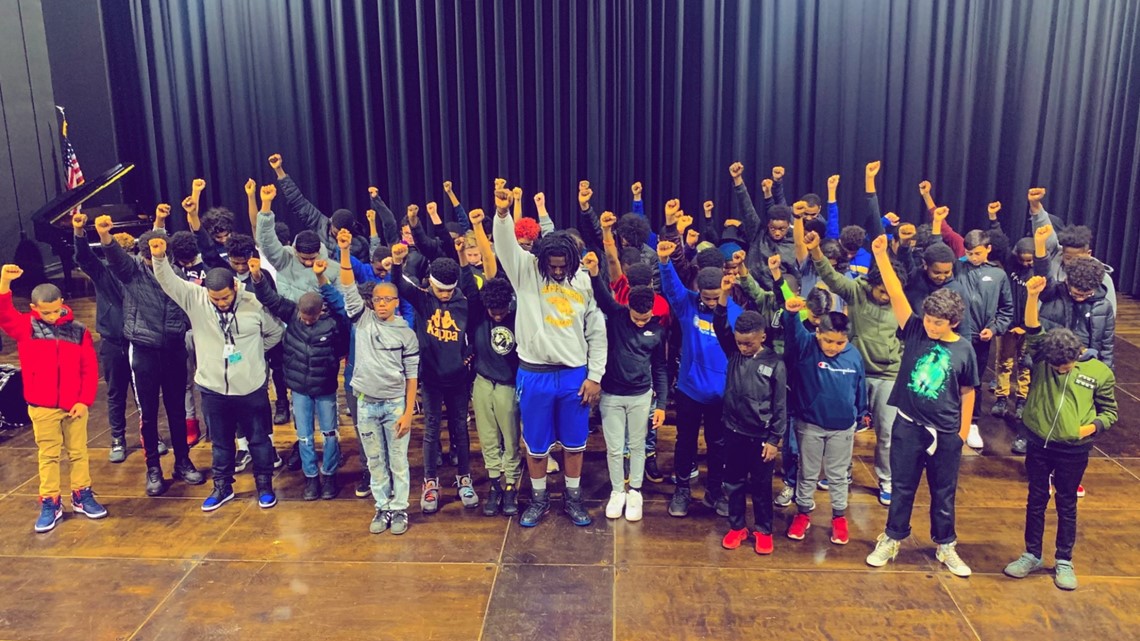
Today, Bell owns his own business — Hana's PDX, a food cart in Northeast. He hasn't been a gang member in a very long time but he still lives in the neighborhood. Last September, his new life and his old life collided when two teenage gang members walked up to him at work and opened fire.
"I got to the hospital and I thought I was gonna die, to tell you the truth," Bell said.
He was shot in his wrist, arm and chest.
The crime remains unsolved, but SEI has been there as he recovers.
"As soon as they found out, my friends, my mentors, they called me and said let them know — anything I needed — reach out. We got you."
That's the kind of support that helps people see their possibilities.
As for Martae Brown, he's back in school and on track to earn his bachelor's degree in education. He's proving SEI's motto — "Life Has Options," which Hopson shares with everyone who walks through the door.
"This is definitely wonderful to see because the goal was always to do something on the level that it could be passed down," Hopson said. "Martae and Alan are just individuals that have come through the program who took it to heart and decided to not only to hear it, but then try to live it and then share it. And the most important thing is to share it."

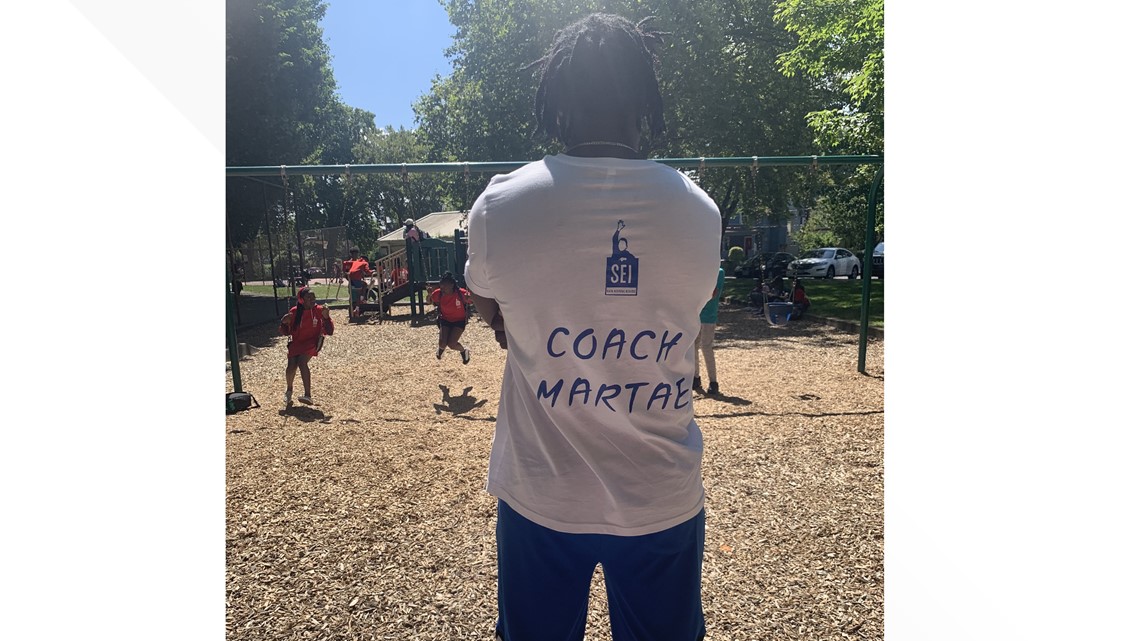
There are lots of SEI alums who are paying it forward, not only in Portland but nationwide. You'll no doubt recognize some of their names — like the coach of the Boston Celtics, Ime Udoka, and Rukaiyah Adams, chief investment officer at Meyer Memorial Trust. There are others, as well, working for the city of Portland, or in health care — every industry you can imagine, and they all got their start at SEI.
The future of SEI
SEI has big plans for its North Portland campus and wants to help even more kids and families. Thousands of people have passed through the building since it opened 40 years ago on North Kerby Avenue.
SEI serves predominantly African American youth wherever they're at risk. There's a school for students and services for their families, too. Hopson says SEI plans to launch an African American Cultural Center on campus. The focus would be Afro-centric but anyone in the community will be welcome to visit, take classes and access services, no strings attached.

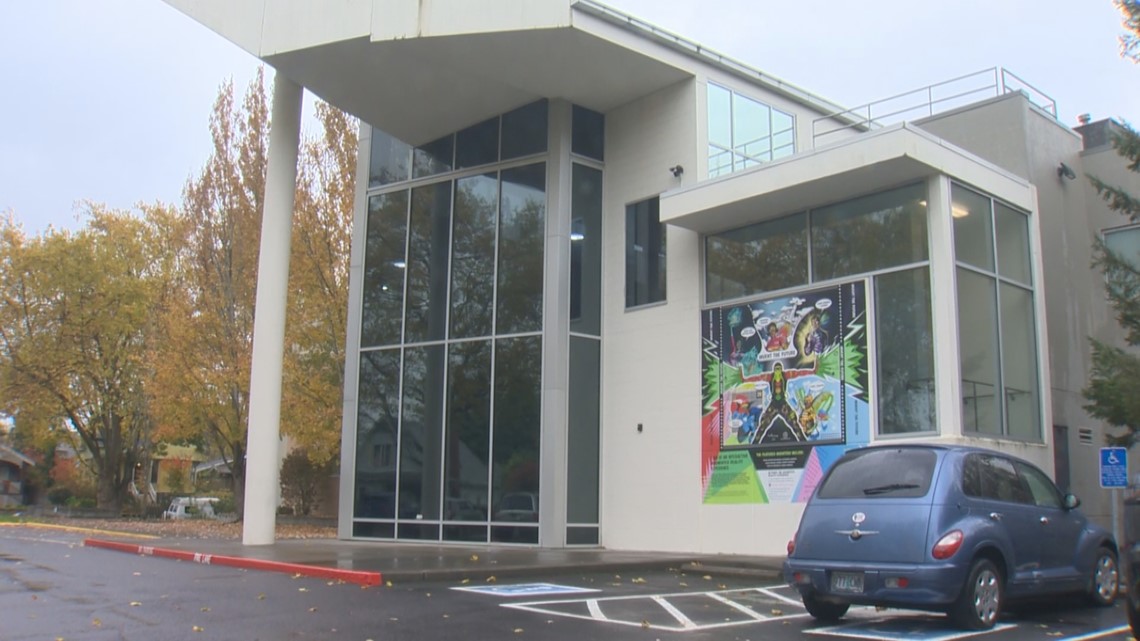
Hopson envisions a place where African Americans can get in touch with their cultural roots, while the center also acts as a bridge to a wider conversation with white residents in inner Northeast Portland.
"Many of them moved here because they wanted a diverse experience for their children and their families. Then gentrification happened — in part because they moved here — and now most of the folks of color have moved out. So giving them a way in which they can connect with folks of color and we can get this cross-pollination of races is just a necessary thing, and SEI has been on the forefront in this city in being able to bridge those kinds of experiences. So, I think the cultural center will continue to do that."
SEI has a big building that is mostly empty until the kids get out of school. Eventually, Hopson plans to rent out the space for part of the day and bring in cultural events and activities. It'll start small — kind of a soft launch. Hopson is working on the timeline but he expects it'll take two or three years before everything is fully up and running.
Hopson hopes the space will be a point of connection in a deeply divided society — something that is much needed.

